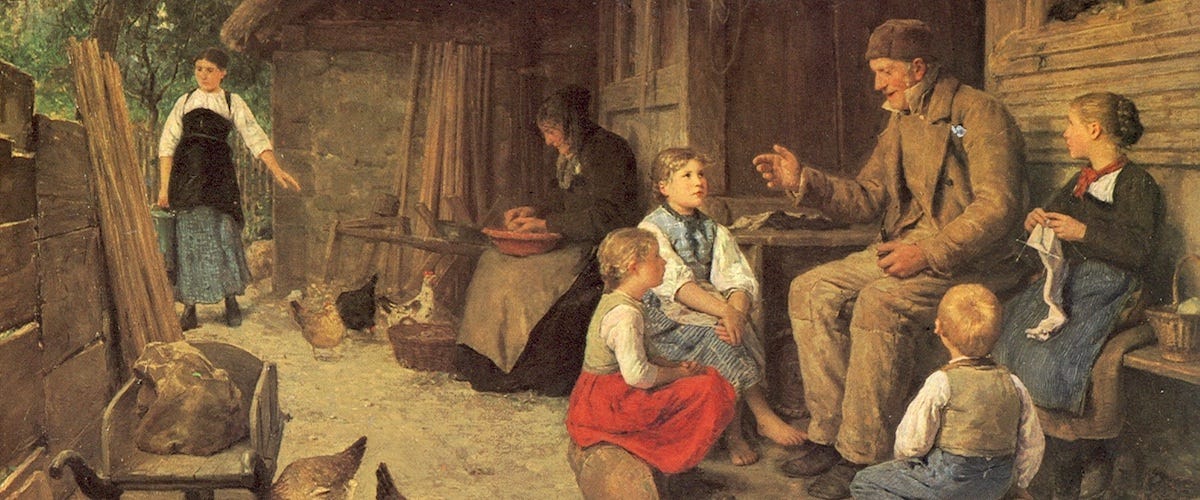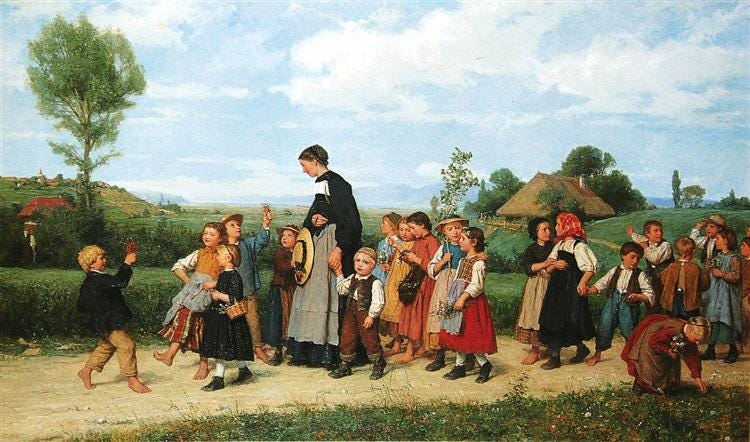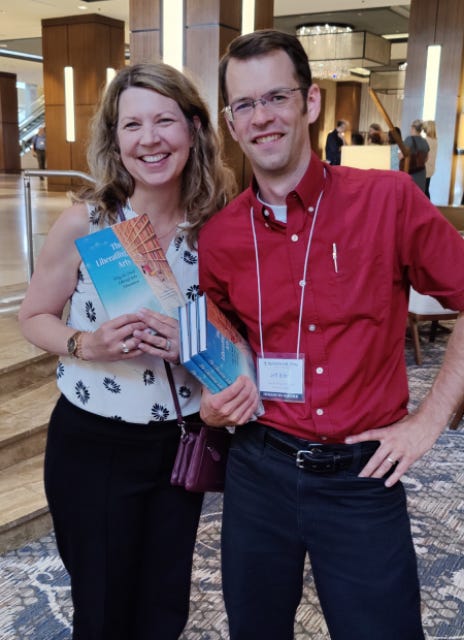Welcome to my newest readers, fellow bibliophiles, and educators!
I am full, satiated.
The Society for Classical Learning conference in Dallas last week did not disappoint. From big ideas to little, I absorbed so much. What are the liberal arts? Who are they for? Why bother? How do I communicate these things to the parents at my school? To my students? How do I create assignments that draw layers of thought from my students? My notebook is fat, full of these questions, book recommendations, and contact details.
And yes, my introvert self did it. I’ve attended SCL six times over the years, but I have to work to talk to strangers. It does not come naturally to me. I approached fellow conference attendees, especially those who run small schools, and I asked questions that began with, “How did you handle . . .?” I’m so glad I got to go again this year.
The SCL workshop I led last week was designed for teachers first, students second. The idea for Teaching Expression: Learning To Read Aloud all came from one college class.
from ye ol’ blog archives . . .
Long ago I took an undergrad course titled Oral Interpretation of Literature. I needed two speech classes to graduate with my education degree, and it happened to fit my schedule. I had no idea what I was walking into. I didn't know that a drama professor taught it.
Like myself, most of the students were education majors thinking we had found an easy class to balance out our heavier ones. No textbook required. Our first assignment was to take turns standing in front of the class to read “Dover Beach.” We were to read aloud and keep eye contact.
What we didn't know was that we would be excoriated for everything from enunciation to volume to facial expression and posture. It was eye-opening to say the least. I had no expectations. But Professor Lewandowski did. Within two weeks I had two Cs and I was proud of them.
Professor Lew promptly coached us as he would an actor presenting a monologue, yet he told us the class was not about drama. Everything we said was about expression, the value of words.
He thought that teachers could perform, not for performance’s sake, mind you, but because that was how you appreciated the words you said. He reminded us that we would have a captive audience every day of the week in our classrooms after all.
Every other week we presented a poem, a passage from a novel, or a bit from a short story or a play. We learned from each other's mistakes, but we also learned from each other's presentations. And by presentation I mean that moment of beauty when the words, the volume, and the expression create a moment of beauty for the audience, a moment of awe.
After presenting four times in class, I still had a C. I was dumbfounded because I was trying my hardest. So I finally stayed after class and asked for help. I wanted to figure out this riddle, this thing I didn't understand how to do. He spent ten minutes helping me polish one section of Rossetti’s “Goblin Market,” just one. But it was enough. After all these weeks, this little bit of practice and coaching was what I needed. By repetition, he taught me in those moments to read the lilt in the Rossetti’s rhyme, to play with different words.
I don't remember if I got an A or a B by the end of the semester, but I do remember improving, performing a section of Leo Tolstoy's “The Death of Ivan Ilyich.” It was a challenge, but I tried and performed, reading and engaging the audience, and using the tools Professor Lew had shown me. I may have done a decent job.
After all these years, decades, I still have a file of notes from that course. I have not forgotten. But more than that, I know interpreting the literature and poetry I teach adds everything to how my students hear. I only hope that my efforts lead my students to the same wonder I experienced at age 19.
On my nightstand
Many of you know I write for Front Porch Republic from time to time, but do you know Jeff Bilbro who manages it? Jeff is an Associate Professor of English at Grove City College, and I attended his SCL workshop series on how the liberal arts are actually the liberating arts.
He served as lead editor of a collection of essays released by Plough Books last week, The Liberating Arts: Why We Need Liberal Arts Education. It is on the top of my TBR pile!
I also bought a new release from Classical Academic Press, The Festive School: Restoring Joy, Liturgy, and Celebration in Christian Education. Father Nathan Carr outlines the formation of students through the shared actions and rhythms of the church. I read an early copy of his book last summer and immediately implemented tea time one day a week in my “Humani-teas” class!
Let me know what you’re reading this summer. Light or deep, for work or play or spiritual practice, I would love to hear from you. Add a comment or two!
As always, please comment below or feel free to email me. And don't forget that the List Library at my website is always available to you, my readers.
Christine







If I could rewind and then (not creepily) shadow you in all the amazing literature courses you took or taught, I’d be there! I attended a college that it’s origins were based on being a college for Teachers. My heart already knew the power of oral presentation as I was really moved by Emma Thompson’s opening in the movie much Ado about nothing. There is a rhyme and a meter that draws people into your words, into your storytelling. Pulling people in to imagine a story is a gift and an art but also a skill that one can polish. I actually inquired about a course for one of my credits towards my degree at the time of oral communications. At this college, which also excelled in drama, they did not have any such module. So I chose to take Acting 1.
I truly believe that even reading out loud is like singing a song, giving pause to places that need pondering. Stretching a word to cue the imagination and changing dynamics of tone to enliven a character. Thank you for empowering young minds and the mature to anchor the future.